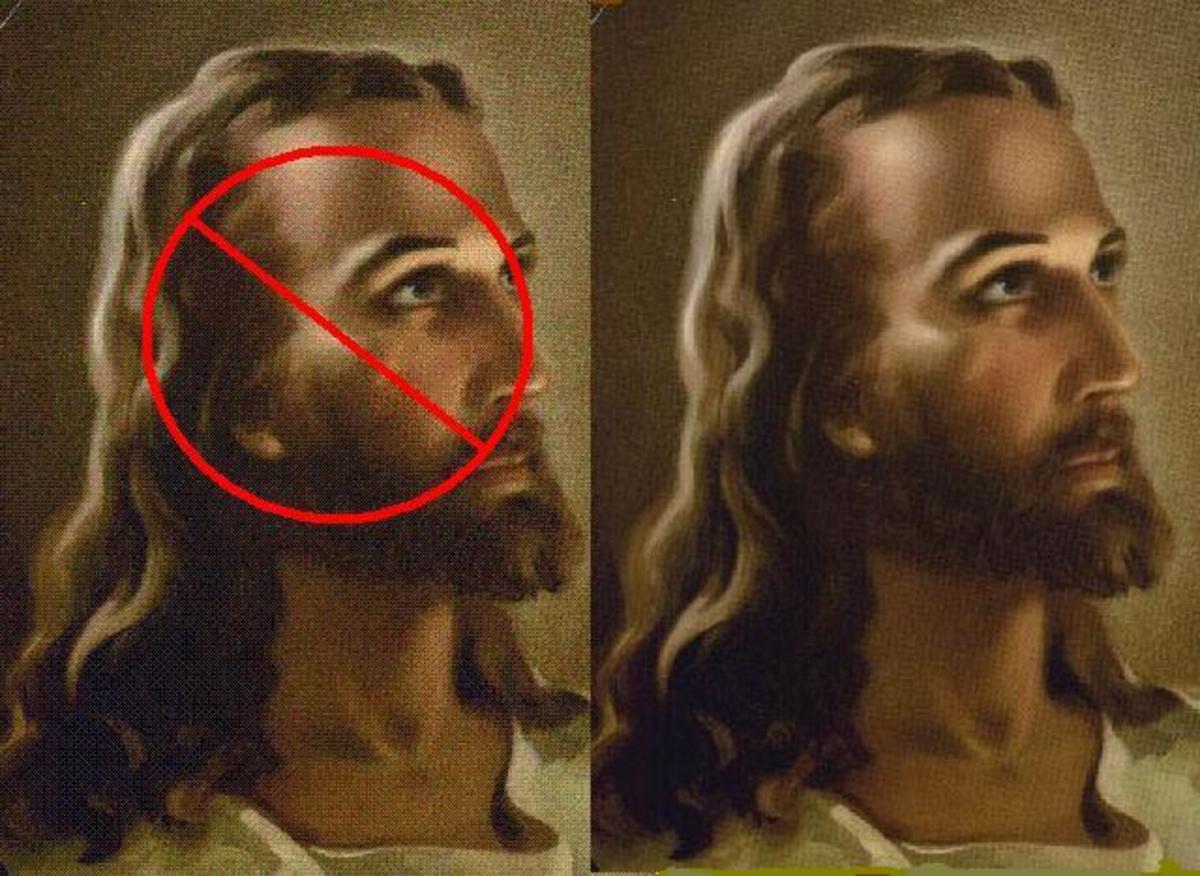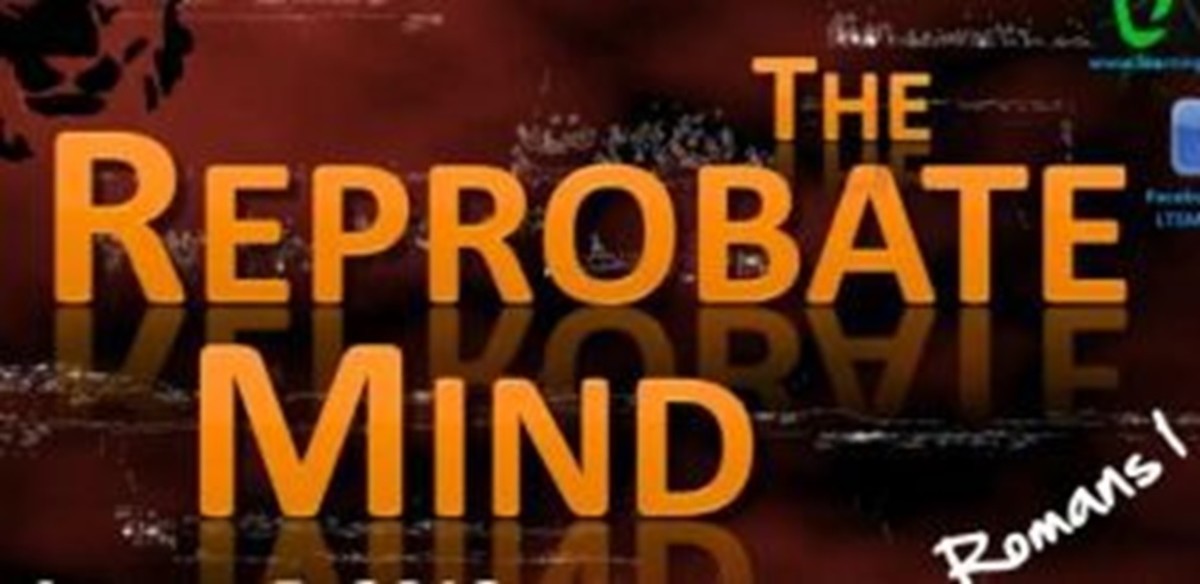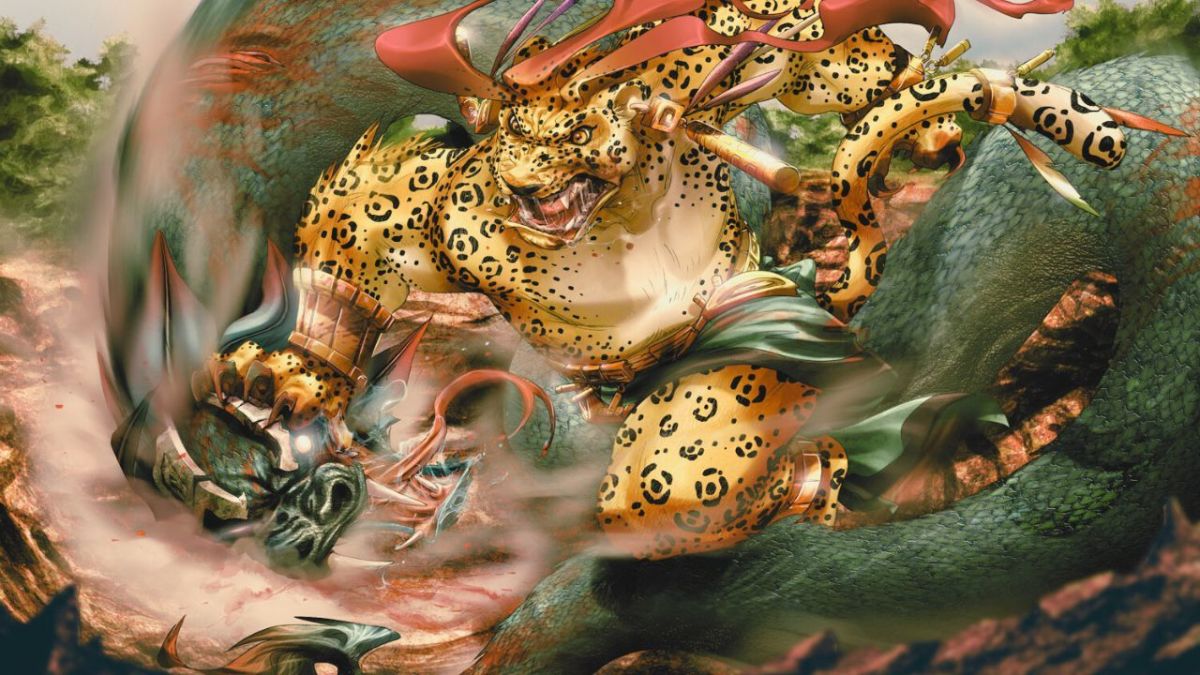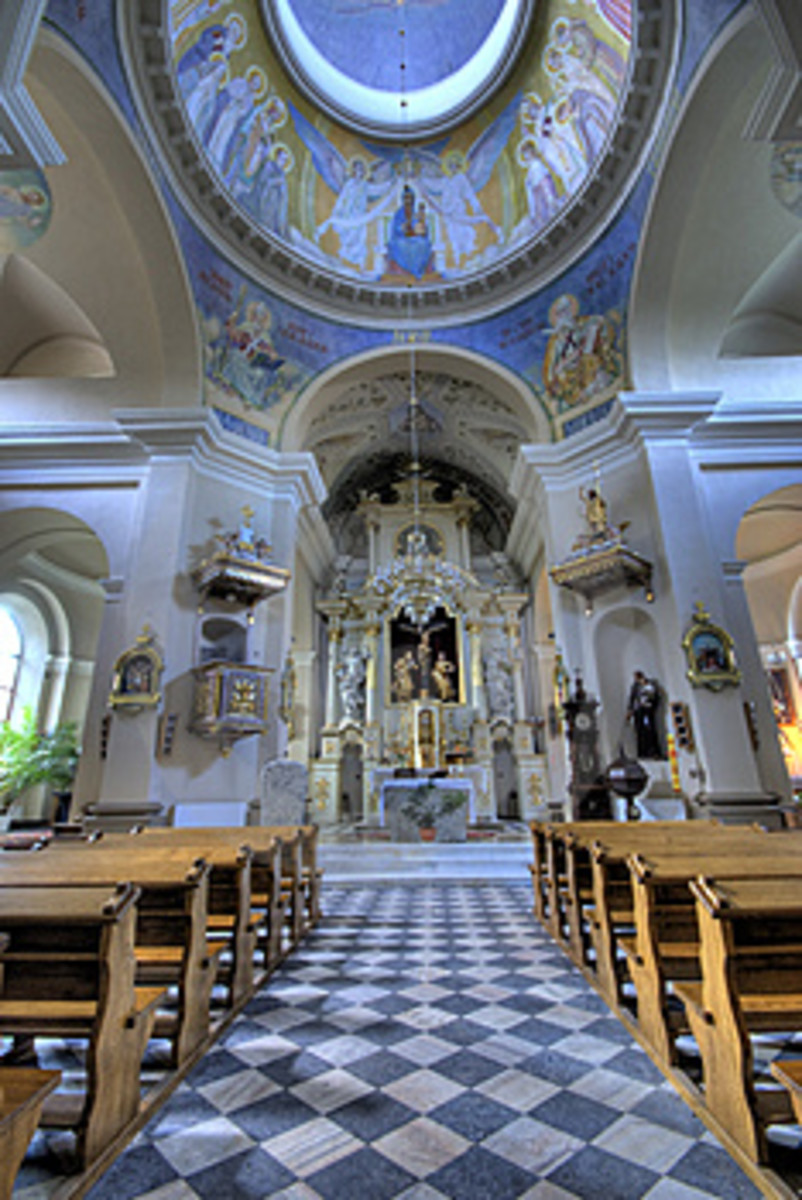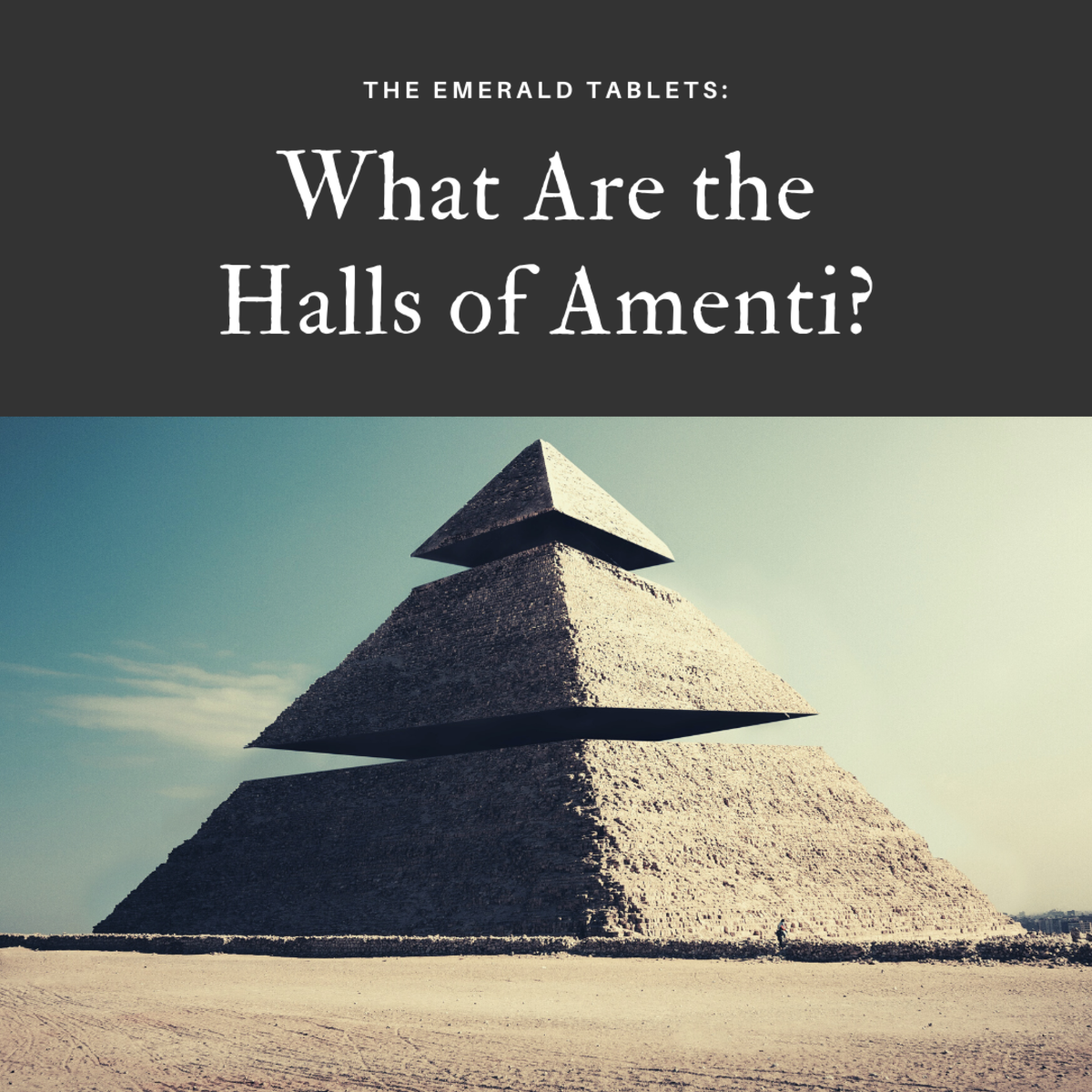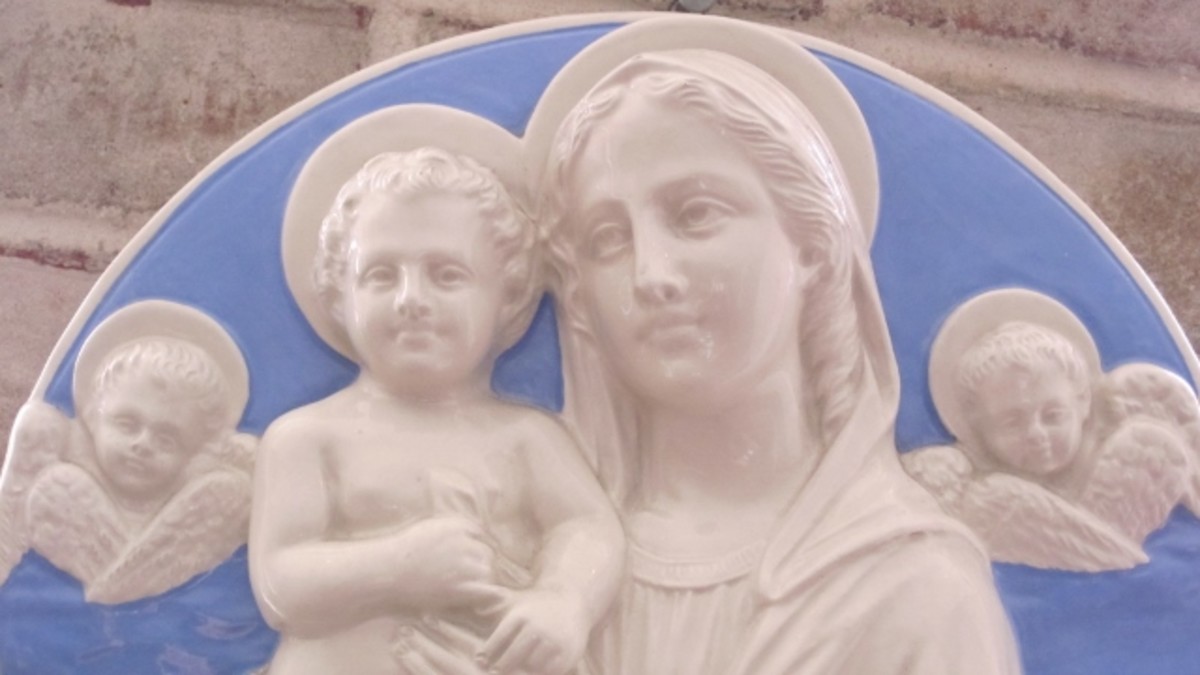A Quiet Word With the Almighty...In Verse.
Christ on Sugarloaf Mount., Brazil.

At Least We Have a Dialogue!
God Listens to Some Poetic Sceptics.
Poets have always had a love/hate relationship with the Creator, if that’s not too charged a statement. Please note that most of the verses here are excerpts from much longer works; in some cases, just one poem would be too much for the average hub article, yet to only include “light“ verse, in that the poems are short, would not be fair to the subject..
In this small but poignant work by the author who has lost someone very close to him, he is sceptical of those who say the Lord has a reason for everything.
D.M.
By R C de M
A warm and selfless person,
She died at sixty-two.
They said God has a reason
To take her thus from you.
I say there is no reason;
There can be no excuse
For man to stand such suffering;
Endure such cruel abuse.
Not in all your bibles;
Not in all your dreams
Can an end as harsh as this
Justify the means.
In this poem, the poet intimates that there may be higher beings than the one’s we are familiar with.
The Junior God by Robert William Service
The Junior God looked from his place
In the conning towers of heaven,
And he saw the world through the span of space
Like a giant golf-ball driven.
And because he was bored, as some gods are,
With high celestial mirth,
He clutched the reins of a shooting star,
And he steered it down to earth.
The Junior God, 'mid leaf and bud,
Passed on with a weary air,
Till lo! he came to a pool of mud,
And some hogs were rolling there.
Then in he plunged with gleeful cries,
And down he lay supine;
For they had no mud in paradise,
And they likewise had no swine.
The Junior God forgot himself;
He squelched mud through his toes;
With the careless joy of a wanton boy
His reckless laughter rose.
Till, tired at last, in a brook close by,
He washed off every stain;
Then softly up to the radiant sky
He rose, a god again.
The Junior God now heads the roll
In the list of heaven's peers;
He sits in the House of High Control,
And he regulates the spheres.
Yet does he wonder, do you suppose,
If, even in gods divine,
The best and wisest may not be those
Who have wallowed awhile with the swine?
In this rather tormented poem, Crane laments on what he sees as the uselessness of bootless cries to Heaven, as the result will be the same.
A spirit Sped
by Stephen Crane
A spirit sped
Through spaces of night;
And as he sped, he called,
"God! God!"
He went through valleys
Of black death-slime,
Ever calling,
"God! God!"
Their echoes
From crevice and cavern
Mocked him:
"God! God! God!"
Fleetly into the plains of space
He went, ever calling,
"God! God!"
Eventually, then, he screamed,
Mad in denial,
"Ah, there is no God!"
A swift hand,
A sword from the sky,
Smote him,
And he was dead.
A God who has no time for the little creatures because of his helping the rich and powerful features here. God seems to be making excuses and sounds just like British bankers, or perhaps that sad sack, Brown, at prime minister‘s question time.!
A Man of Leisure Has No Time
By R C de M.
There was something touching about his prayer,
Although I was busy and couldn’t be there.
You have to remember there’s things to be made;
After all, building’s really my trade.
I suppose you might say I have peculiar ways,
But I did make your world in just seven days.
I’ve requests to be honoured by kings and tycoons;
Why, I even helped one lot to get to the moon!
I’m liaising with generals; analyzing the flaws
Of military tactics (how to win wars).
I’m busy with leaders; the executive section,
On how to raise taxes; win an election.
You see? ‘Course I’m sorry, poor little things,
No time to save sparrows, mend butterfly wings.
Here we have the poet repeating what has been a popular opinion through the centuries that man calls on God when his life closes in. A sort of “There’s no atheists in the trenches,“ observation
There Is No God, the Wicked Sayeth
by Arthur Hugh Clough
"There is no God," the wicked saith,
"And truly it's a blessing,
For what He might have done with us
It's better only guessing."
"There is no God," a youngster thinks,
"or really, if there may be,
He surely did not mean a man
Always to be a baby."
"There is no God, or if there is,"
The tradesman thinks, "'twere funny
If He should take it ill in me
To make a little money."
"Whether there be," the rich man says,
"It matters very little,
For I and mine, thank somebody,
Are not in want of victual."
Some others, also, to themselves,
Who scarce so much as doubt it,
Think there is none, when they are well,
And do not think about it.
But country folks who live beneath
The shadow of the steeple;
The parson and the parson's wife,
And mostly married people;
Youths green and happy in first love,
So thankful for illusion;
And men caught out in what the world
Calls guilt, in first confusion;
And almost everyone when age,
Disease, or sorrows strike him,
Inclines to think there is a God,
Or something very like Him.
This amusing tale tells of the “Good” angel in her quest to destroy the public houses in Ireland. The poet ends with a consolation for those who enjoy a tipple.
The Destroying Angel
By William Topaz McGonagall
And when the public-houses there were blazing like a kiln,
She cried, " Now, my friends, we'll march to the Bonnet Hill,
And we'll fire the dens of iniquity without dismay,
Therefore let's march on, my friends, without delay."
And when we arrived at the Bonnet Hill,
The Angel fired the public-houses, as she did well.
Then she cried, "We'll leave them now to their fate,
And march on to the Murraygate."
Then we marched on to the Murraygate,
And the Angel fired the public-houses there, a most deserving fate.
Then to the High Street we marched and fired them there,
Which was a most beautiful blaze, I do declare.
And on the High Street, old men and women were gathered there,
And as the flames ascended upwards, in amazement they did stare
When they saw the public-houses in a blaze,
But they clapped their hands with joy and to God gave praise.
Then the Angel cried, "Thank God, Christ's Kingdom's near at hand,
And there will soon be peace and plenty throughout the land,
And the ravages of the demon Drink no more will be seen."
But, alas, I started up in bed, and behold it was a dream!
Some amusing and subjective conclusions can be drawn from this enigmatic work: loss of virginity? Perhaps erectile dysfunction? Or the loss of life itself?
Musical Instrument
Elizabeth Barrett Browning.
…Sweet, sweet, sweet, O Pan!
Piercing sweet by the river!
Blinding sweet, O great god Pan!
The sun on the hill forgot to die,
And the lilies revived, and the dragon-fly
Came back to dream on the river.
Yet half a beast is the great god Pan,
To laugh as he sits by the river,
Making a poet out of a man:
The true gods sigh for the cost and pain—
For the reed which grows nevermore again
As a reed with the reeds in the river.
Mmmm. Might we say that “any god is a port in a storm?“ or that no god works at all?
Manufactured Gods
by Carl Sandburg
THEY put up big wooden gods.
Then they burned the big wooden gods
And put up brass gods and
Changing their minds suddenly
Knocked down the brass gods and put up
A doughface god with gold earrings.
The poor mutts, the pathetic slant heads,
They didn’t know a little tin god
Is as good as anything in the line of gods
Nor how a little tin god answers prayer
And makes rain and brings luck
The same as a big wooden god or a brass
God or a doughface god with golden
Earrings.
The eternal debate between deist and atheist is vividly outlined here by Blake.
The Everlasting Gospel
by William Blake
The vision of Christ that thou dost see
Is my vision’s greatest enemy.
Thine has a great hook nose like thine;
Mine has a snub nose like to mine.
Thine is the Friend of all Mankind;
Mine speaks in parables to the blind.
Thine loves the same world that mine hates;
Thy heaven doors are my hell gates.
Socrates taught what Meletus
Loath’d as a nation’s bitterest curse,
And Caiaphas was in his own mind
A benefactor to mankind.
Both read the Bible day and night,
But thou read’st black where I read white.
Perhaps Pope suggests those content with the simple things in life don’t need a Great Supreme Power to further their ambitions.
Essay on Man,
Alexander Pope
Lo! the poor Indian, whose untutored mind
Sees God in clouds, or hears him in the wind;
His soul, proud science never taught to stray
Far as the solar walk, or milky way;
Yet simple nature to his hope has giv'n,
Behind the cloud topp'd hill, an humbler heav'n;
Some safer world in depth of woods embrac'd,
Some happier island in the wat'ry waste,
Where slaves once more their native land behold,
No fiends torment, no Christians thirst for gold.
To be, contents his natural desire,
He asks no angel's wing, no seraph's fire;
But thinks, admitted to that equal sky,
His faithful dog shall bear him company.
Here the poet talks of a struggle to attain faith, a state which seems to go somewhat against the grain. I like the reference to the rope and pulley!
Talking to God
By Melody Lacina
My sister's boyfriend swears
you keep tabs on all of us. He means
whether we're good or bad, but I imagine
a bar bill run up for regulars, who knows
when or how much we'll have to pay.
I see you behind a brass counter
wiping up beer and fingerprints, rinsing
glasses over and over. Always the same
bad jokes. Mostly you pretend
to listen, your head cocked as if straining
toward every hoarse request. You pour
whatever you want and the desperate ones,
thirsty for anything, drink it.
But maybe my sister is right,
that you don't count wrongs and kindnesses
on a score card, adding or subtracting
in blessed arithmetic. She trusts
you were human once, though she's less certain
about the details: the cross, the cave,
the unreasonable rising. Still, her faith is
a well she can draw from. Where did she get
the pulley and the rope?
Me, I don't know what to think.
I try to believe in spirit
held in everything from blades of grass
to Saturn's rings, but such ordinary
holiness is really more than I am
willing to bear. Give me time.
Faith may be something else I can grow
into, like my sister's hand-me-downs.
Even when we were children I had to wait
years until what I wanted would fit.
And, finally, in this modest poem, the poet despairs of what religious stultification can do to the impressionable mind of a child
The Dangerous Years
By R C de M.
More free than any bird,
The child’s mind
Sifts images;
Stores pleasures;
Invites the universe,
Until some fool
Gives her a bible.

